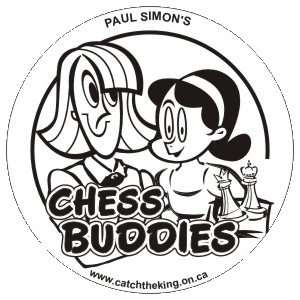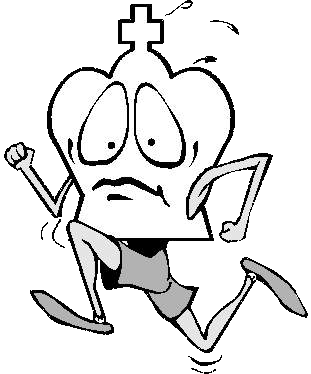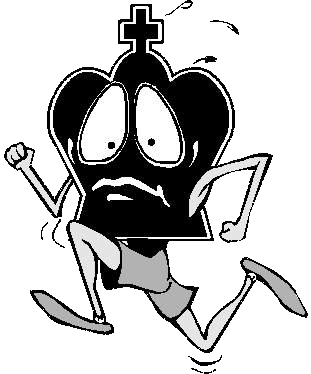1. Catch the King Chess Materials
2. FAQ (Frequently Asked Questions)
3. Teacher & Classroom Questions
4. Introductory Email Chess (Practice Session)
5. Consultation & Tandem Chess
6. Puzzles (Math Chess & Trivia)
Paul Simon's
"Catch the King"
(Chess For Elementary Schools)
Programs & Activities
Teacher Workshops, Classroom Instruction, Simultaneous & Blindfold Exhibitions
Teacher Workshops introduces teachers to the basics of chess in the classroom as an educational tool or to the basics of tournament play and the preparation that is involved.
Classroom Instruction - introduces teachers and students to the role of chess as an educational tool and its role in the classroom.
Simultaneous & Blindfold Exhibitions - evaluates the level of the students individually or as a group.
Schools may schedule times for these activities by registering for them by email.
Blindfold Living Chess Game
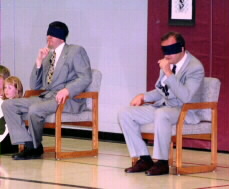
National Chessmasters Paul Simon (left) & Hans Jung playing a blindfold game of chess on November 17, 2000 at Branlyn Community School.
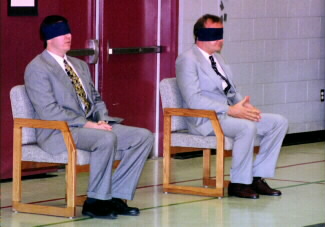
The masters played the game by calling out their moves. These moves were then played out on a ....
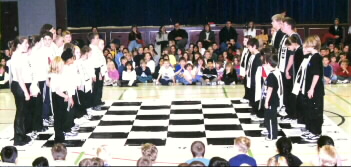
.... giant chessboard on which Branlyn students represented the various chessmen.
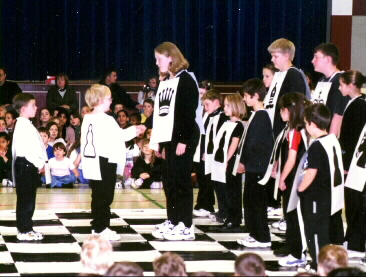
The students shook hands to indicate that a capture had occurred.
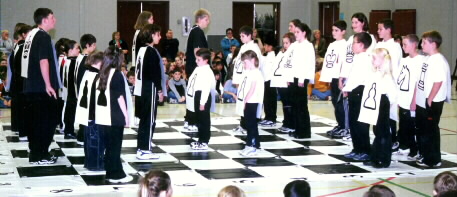
What will be the next move?
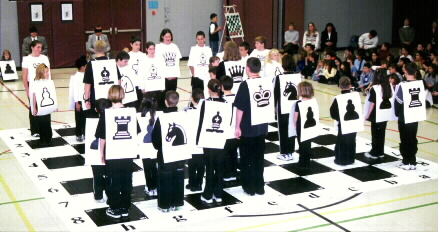
In the background, a student follows the course of the game on a demonstration board giving the audience another view of the "Live Chess Game".
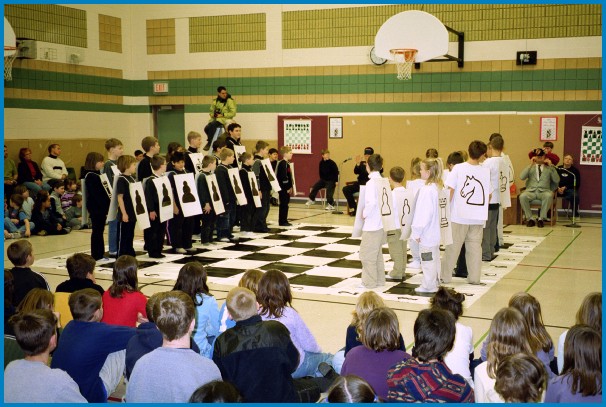
Play is about to begin in another "Live Chess Game", at Lynndale Heights School on February 5, 2002, as Mr. Jung (far right) is in the process of being blindfolded.
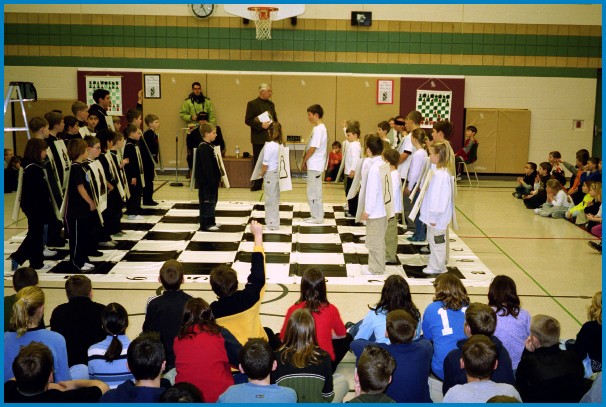
Two moves into the game and already there is a question!
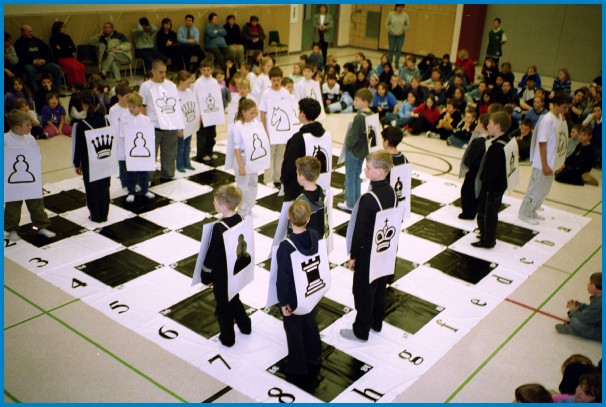
The position is getting more complicated.
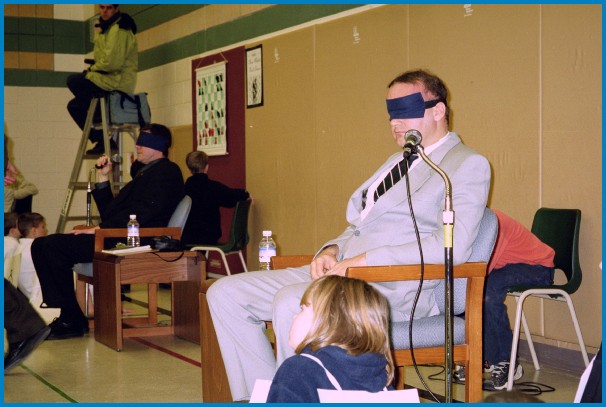
I (background) wonder what Hans (foreground) "sees" as his next move?
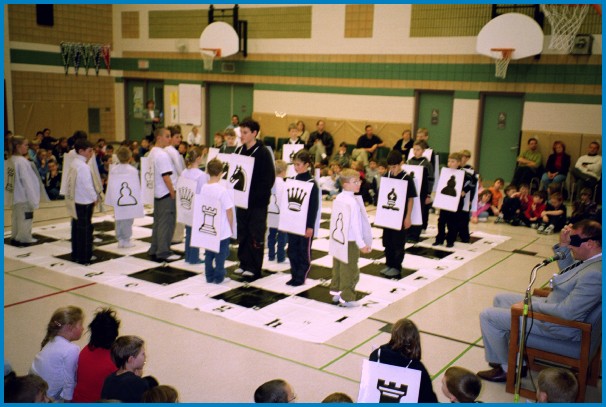
The game is almost over.
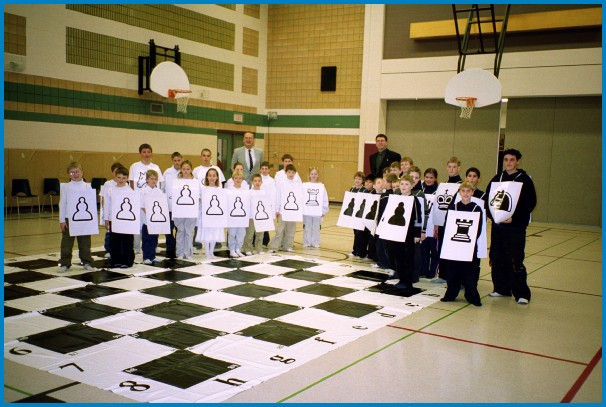
The two "teams" pose together at the end of the game.
Simultaneous Chess Exhibitions
A simultaneous chess exhibition, also called a "Chess Simul", allows a number of people to play a recognized chess master, all at the same time. Chess simuls are both entertaining and instructive, offering schools a unique opportunity to reach a new level in chess. They are ideally suited as an activity for Family Night or Education Week.
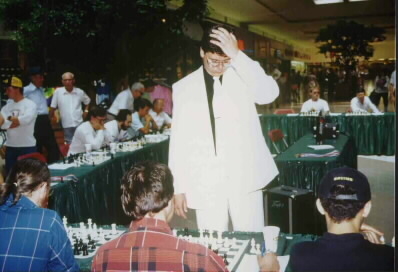
What to do!?
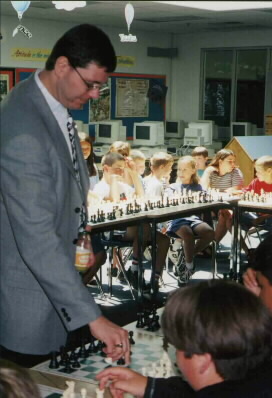
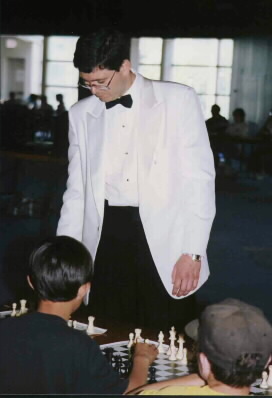
When there are only about 25 opponents, some simuls only last a few hours.
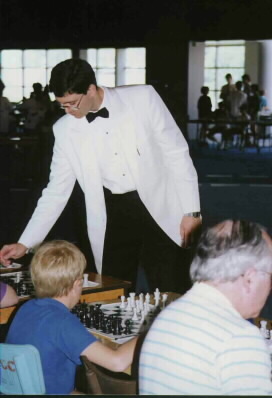
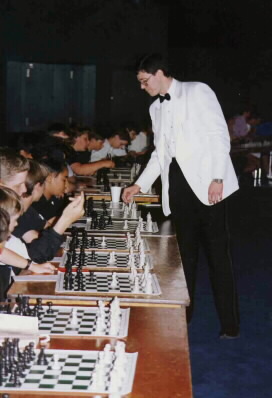
At other times, there are hundreds of opponents ...
*Photographs by Mike Perron*
Chess "Buddies" Simultaneous
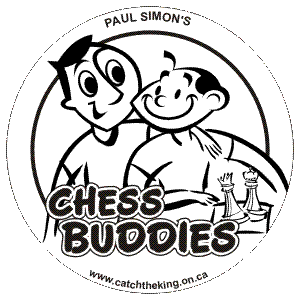
This activity is designed to offer students the opportunity to interact and learn from a recognized master by working together in small groups. Experienced players are teamed with novice partners - "chess buddies". As the games are being played, the "chess buddies" and the exhibitor will quietly discuss the various aspects of their positions. The focus is on a shared co-operative learning experience for the students, not on competition.
